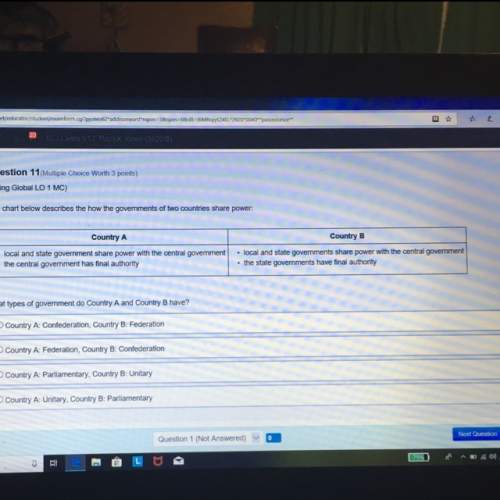
As a result of Imperialism, the country that ruled India in the early 1900s was . At first the Congress party pledged support for the crown, but eventually the or people with extreme opinions, within the group called for an end to the cooperation with Britain. was a man who helped Indians achieve independence. He also wanted to help the lowest social class in India, called the . After World War I, the fight for independence was renewed. Gandhi new that the Indian people would never win their fight through a military fight, so instead he called for . He also called for Indians to form a , or to refuse to buy English goods. Eventually, Gandhi was arrested. During his absence, the conflicts between two religious groups in India, the and the became more apparent.
The Middle East is the birthplace of three great religions--, , and . Before World War I, the controlled the Middle East but by the end of the war, their rule was limited to what is today Turkey. received the lands called Palestine, Transjordan, and Iraq to be governed on behalf of the League of Nations. Many people in the Middle East did not want to be ruled by outside governments. became a republic after overthrowing the last Ottoman Emperor. Persia was led by after overthrowing the governments influenced by Great Britain and France. It became the country of . In Arabia, a sheikh named set out to extend his power. It eventually became the country of Saudi Arabia. The was a British document that recognized Palestine as the national home of the Jewish people but not at the expense of the Arab peoples. This conflict between the Arabs and the Jews in this area has been going on for much of history. Although there was much nationalism in the Middle East, there was also much outside interest in the area due to the fact that the region is rich in a valuable natural resource, .
By the beginning of the 20th century, most of Latin America had been free for about 80 years. None of them played a large part in World War I. However, many of these countries had political strongmen, or that ruled as dictators. These people encouraged foreigners to invest in their countries but did not share the profits with the people. In Mexico, a ruler named helped to bring economic progress to his country. However, he did not hold free elections and there was much anger within the country. Eventually there was a revolution and a man named Venustiano Carranza took control. The United States remained interested in Latin America. In 1823, it had issued the warning European countries to keep their hands off of the region. Many Latin American people felt the United States was only out to protect its own interests. In the 1930s, the U. S. implemented the Policy which promised to respect the rights of Latin American Countries.
In China, there were two important leaders, who overthrew the Ching Dynasty and became the Nationalist leader and who led the Long March and started the communist government in China.
FIll in the blank with these words:
Britain
Chiang Kai-shek
Radicals
Gandhi
Oil
Boycott
Muslims
Hindus
Christianity
Islam
Judaism
Turkey
Russia
Iran
Reza Shah Pahlavi
Mandate for Palestine
Oil
Great Britain
Alvaro Obregon
Monroe Doctrine
Good Neighbor
Sun Yat-sen
Caudillos

Answers: 1
Another question on History

History, 22.06.2019 02:00
What spanish colony gained its independence in part due to the efforts and sacrfice of a village priest named father hidalgo? a. argentina b. venezuela c. mexico d. peru answer asap
Answers: 3

History, 22.06.2019 09:30
Which best describes the main difference between the national woman suffrage association (nwsa) and the american woman suffrage association (awsa
Answers: 1

History, 22.06.2019 12:20
The bubonic plague killed 35% to 50% of the european population. the death toll was much higher in urban areas then in rural ones. the disproportion of mortality rates can be attributed to fact that cities were more densely populated then rural areas. england and italy were mostly affected; in some towns, the plague claimed 70-80% of the residents. the high death rates resulted in a large amount of wealth and property being passed from one owner to another as people moved from the country to the and other members of the clergy contracted the plague at a higher rate, because they had more contact with people infected by the disease. because of the high mortality rate, the church was desperately in need of new priests. many young priests were ordained without proper training. these inexperienced clergymen caused many to lose respect for the church. according to the passage, what were the effects of the plague? select all that apply. about 70 percent of europeans died. the plague resulted in people moving to the cities. the plague caused people to lose faith in the church. more people enrolled in universities and became priests. wealth and property changed hands after people died.
Answers: 1

You know the right answer?
As a result of Imperialism, the country that ruled India in the early 1900s was . At first the Congr...
Questions

Mathematics, 14.09.2020 16:01

Mathematics, 14.09.2020 16:01

Mathematics, 14.09.2020 16:01

Mathematics, 14.09.2020 16:01

Mathematics, 14.09.2020 16:01

Mathematics, 14.09.2020 16:01

Social Studies, 14.09.2020 16:01

Geography, 14.09.2020 16:01

Social Studies, 14.09.2020 16:01

English, 14.09.2020 16:01

Mathematics, 14.09.2020 16:01

Mathematics, 14.09.2020 16:01

Mathematics, 14.09.2020 16:01

Mathematics, 14.09.2020 16:01

English, 14.09.2020 16:01

Mathematics, 14.09.2020 16:01

English, 14.09.2020 16:01

English, 14.09.2020 16:01

Mathematics, 14.09.2020 16:01

Mathematics, 14.09.2020 16:01




